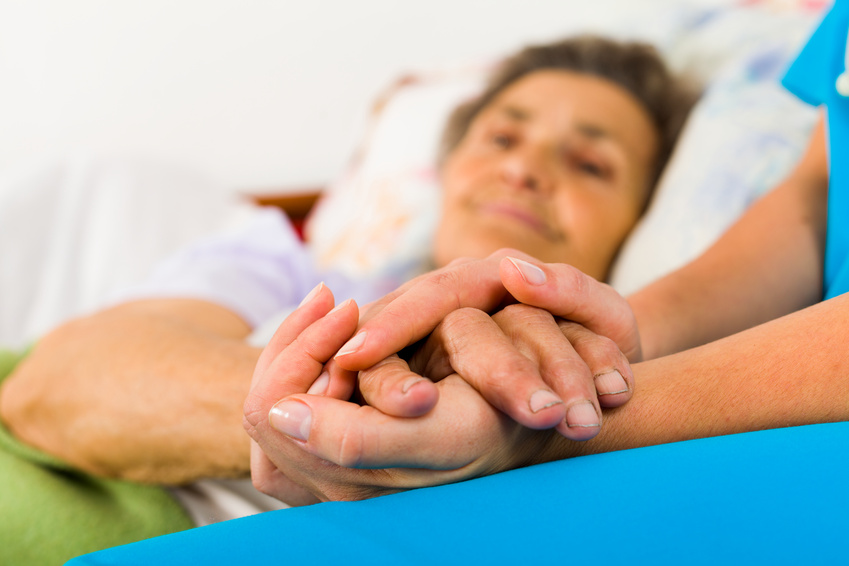
Nursing is a profession, not just a job. Do your students know and clearly understand what it means to be a member of a profession?
Because incivility and other unprofessional behaviors are lived out and become acceptable in culture, some students do not have a clear sense of what it means to be a member of a profession and live out professional behaviors that are foundational to nursing practice.
Though it is imperative to help students to THINK like a nurse, the importance of guiding and strengthening the ability of students to ACT like a nurse must not be neglected and be clearly defined and expected.
Clearly define a high “bar” of expectations for practical professional behavior. Encourage your students to DESIRE to be the best can also help develop professionalism in your students.
Desire to Be Excellent
Excellence means that you have a strong desire to excel and be the best that you can possibly be. Excellence is inwardly motivated and is present because you cannot imagine doing anything less than your very best.
If you or your students are content to be average and just good enough to get by, you sell yourself short and will not live up to the potential that you could be as a person and nurse (Grossman & Valiga, 2013).
Encourage your students to never accept the status quo, but push yourself to do what is needed and sacrifice to be the best nurse you can possibly be.
For the health care professional, excellence needs to be a way of life. Excellence begets excellence, for ourselves and for those we work with.
“Houston… We Have a Problem”
Though encouraging a desire to be excellent works for some, other students struggle with living out the essence of this professional behavior. Here are a few examples of unprofessional student behaviors that educators have shared:
- Student entitlement… “I should get a good grade because I paid for it!”
- Unwilling to do the needed work/NOT buying the “flipped classroom”
- Wanting to be “spoon-fed” as adult learners… “Just tell me what I need to know for the test.”
- “My biggest struggle is to get the students to do the required work with a minimal amount of complaining.
Unprofessional Behavior Defined
In addition to faculty anecdotal comments, the following examples define the unprofessional behavior of student incivility and are derived from the nursing literature:
- Rude comments, engaging in side conversations, dominating class
- Cell phone, texting, inappropriate computer use in class
- Late to class and leaving early
- Anger or excuses for poor performance
- Bad-mouthing other students, faculty, and the nursing program (Clark & Springer, 2010/Clark, 2008)
Practical Professionalism
What follows are practical professional behaviors that, from my perspective, comprise the essence of what nursing students should internalize. They should be established by the time they complete nursing education. This list is not meant to be exhaustive. This summary of professional behaviors is derived from my own observations in practice as well as from those who have been my mentors and what I have seen lived out in their practice.
1. Ask questions!
- Remember that you are a student learner! Do not become defensive when you do not know the answer, but determine to find the correct response.
- Intellectual humility is an important principle that you must maintain throughout your career, especially as a new nurse. Recognize your limitations and what you don’t know, never fake it, but always ask questions of your colleagues to be safe and provide the best possible care for your patients.
2. Reflect on your practice
- Reflect on what went well/poorly and make adjustments to prevent similar problems in the future.
- Reflection will guide students to learn from their mistakes, receive constructive feedback, and grow as a result.
3. Prompt and prepared
- Be on time for clinical, prepare for care in the time allotted, and be ready to receive report on time at the beginning of clinical.
- Complete treatments, medications in the time frame they are ordered.
- Complete all clinical documentation in a timely manner.
- Have all aspects of care completed at the end of shift and be present in post conference before it begins.
4. Caring
- Be truly engaged and empathetic toward those you care for and demonstrate this by your caring presence.
- Reflect on what you can do to practically demonstrate empathy and show that every patient and family member matters to you.
5. ZERO tolerance for incivility
- Do NOT talk negatively about any student or faculty to others.
- Be respectful and direct in all communication with students and faculty. Make a commitment to go to any student or faculty member you have a concern about.
- Stand up for the absent colleague if students are gossiping about another. Encourage the person to go directly to the other person and keep it between them and NOT the group.
6. Be a TEAM player
- Answer call lights regardless if they are your patients or not.
- Offer to help your colleagues whenever you have a chance.
- Be a uniter in all you say and do, not a divider.
In Closing
How well are your expectations for professional behavior communicated in your program and especially the clinical setting? It has been said that no student will rise to low expectations. Have a high, but realistic bar of professional behavior and you will see your students work to attain this essential aspect of professional practice.
Though it is imperative to help students to THINK like a nurse, by following these practical strategies, you can also develop their ability to ACT like a nurse and be a true professional when they graduate!
What do you think?
What have you done in your program to raise the bar of professional expectations and behavior?
Comment below and let the conversation begin!
References
- Clark, C. M. (2008). The dance of incivility in nursing education as described by nursing faculty and students. Advances in Nursing Science, 31, E37–E54.
- Clark, C. M. & Springer, P.J. (2010). Academic nurse leaders’ role in fostering a culture of civility in nursing education, Journal of Nursing Education, 49(6), 319–325.
- Grossman, S.C. & Valiga, T.M. (2013). The new leadership challenge: Creating the future of nursing. (4th ed.) Philadelphia, PA: F. A. Davis Company.
Keith Rischer – PhD, RN, CEN
As a nurse with over 35 years of experience who remained in practice as an educator, I’ve witnessed the gap between how nursing is taught and how it is practiced, and I decided to do something about it! Read more…
The Ultimate Solution to Develop Clinical Judgment Skills
KeithRN’s Think Like a Nurse Membership
Access exclusive active learning resources for faculty and students, including KeithRN Case Studies, making it your go-to resource.



